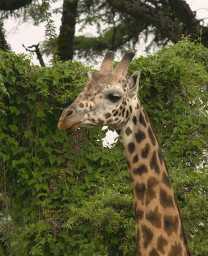
We left Mysigio Camp and headed for the Ndutu region of Serengeti National Park. We descended from the highlands and then began another long slow ascent, and came upon some giraffes that towered over the surrounding trees.
 |
| Giraffe near Mysigio Camp |
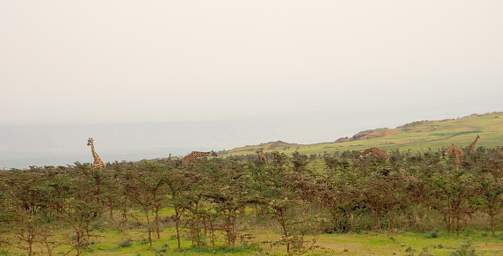 |
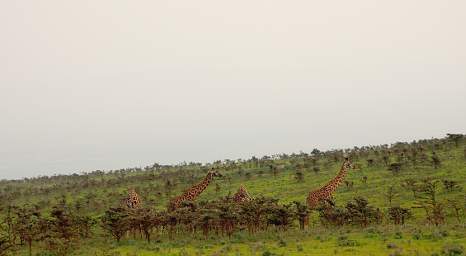 |
| Oldupai
Photo by Dona |
Oldupai
Photo by Dona |
We also encountered more weavers, which never seemed to fail to delight us.
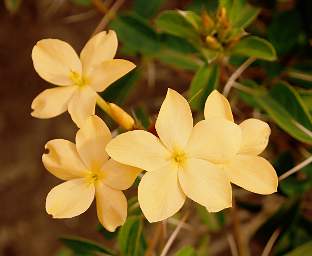 |
| Flower Xxx Yellow
Photo by Dona |
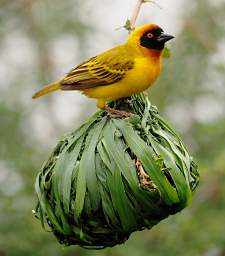 |
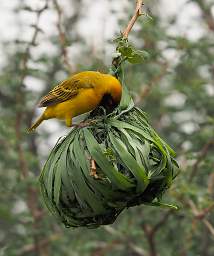 |
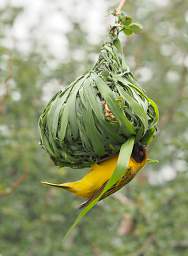 |
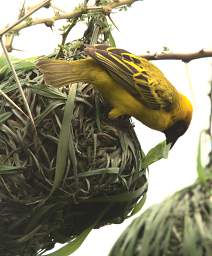 |
| Photo by Dona | Photo by Dona | Photo by Dona | |
| Vitelline Masked Weaver | |||
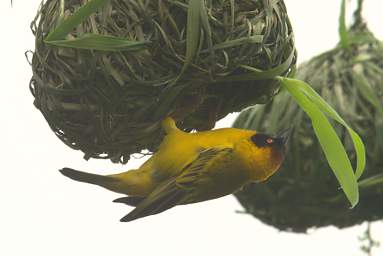 |
 |
| Vitelline Masked Weaver | Xxx Vitelline Masked Weaver F |
Oldupai gorge was somewhat of an oasis in a stark land. It was full of birds and lizards; whether because of the gorge, or the tourist facilities and attendant extra food it's not clear. I expect a little of both. Or maybe just because we were stopped and walking around and had time to see things.
As explained by the park service orientation guide, Oldupai gorge is usually referred to as "Olduvai" gorge in the literature, a result of European mis-understandings of local pronounciations. "Oldupai" is a Maasai word for a sisal plant growing in the area.
The remains of some of our earliest known ancestors have been found at archeological sites in the gorge. It has been and continues to be an important scientific site for piecing together our evolutionary history. The site was occupied by Homo habilis 1.9 million years ago; Homo erectus 1.2 million years ago; and Homo sapiens 17,000 years ago. Stone tools found at the gorge sites have helped piece together the developmental history of humankind.
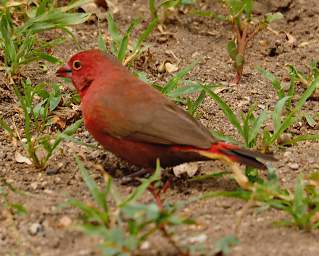 |
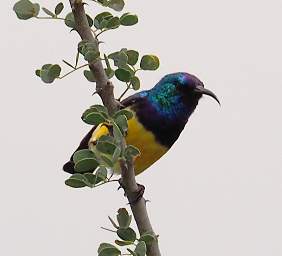 |
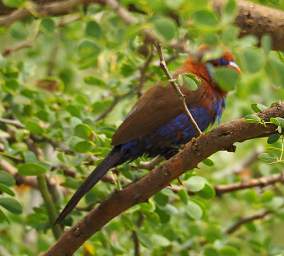 |
| Red Billed Fire Finch
Photo by Dona |
Variable Sunbird
Photo by Dona |
Purple Grenadier
Photo by Dona |
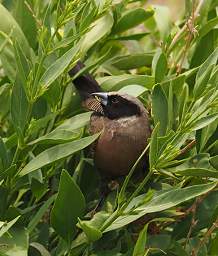 |
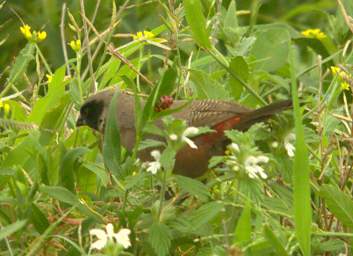 |
| Black Faced Waxbill
Photo by Dona |
Black Faced Waxbill |
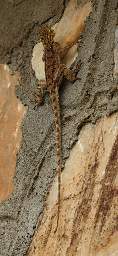 |
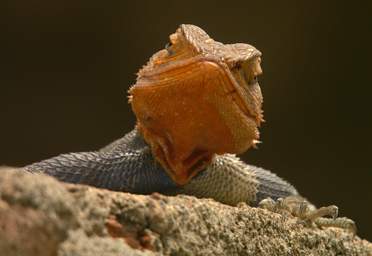 |
| (female)
Photo by Dona |
 |
| Red Headed Rock Agama |
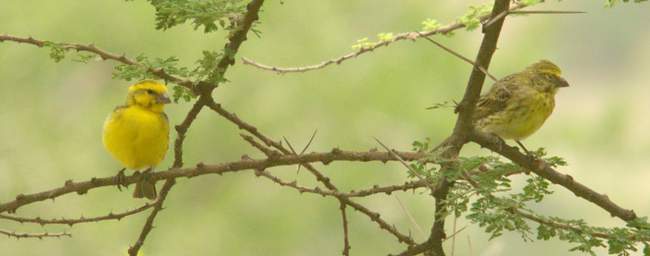 |
| White Bellied Canary |
From Oldupai we headed into a huge landscape on the fringes of the Serengeti plains. Dust devils rose in the distance, and we left trees behind.
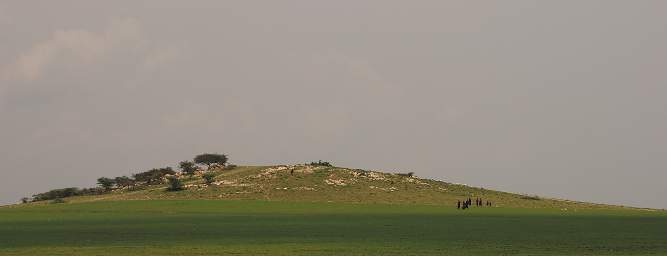 |
| Plains around Oldupai Gorge
Photo by Dona |
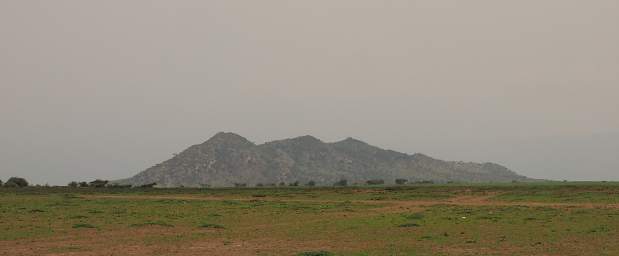 |
| Plains around Oldupai Gorge
Photo by Dona |
We came to a place called "Shifting Sands," a small crescent-shaped sand dune which is steadily marching across the plain to the west. There are concrete markers in the dirt track leading up to the dune indicating its position in previous decades. Apparently the sand is slightly magnetic, and originally came from the volcano which was Ngorongoro. The magnetism is what keeps the dune a dune, rather than slowly being dispersed by the relatively steady wind. Douglas told us the shifting sands are a sacred site for the Maasai; but in what way I don't know.
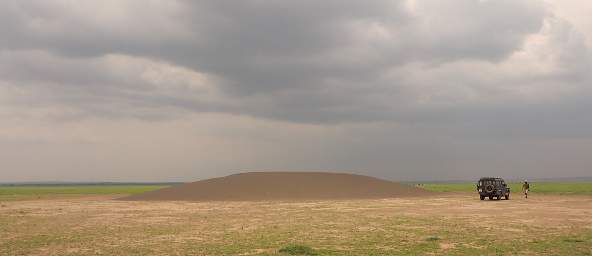 |
| Shifting Sands
Photo by Dona |
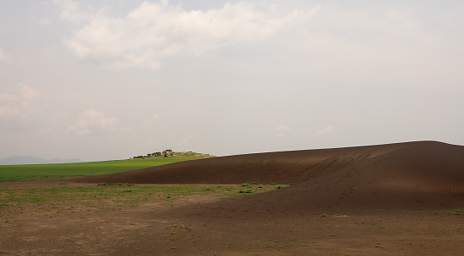 |
| Shifting Sands
Photo by Dona |
We found a dung beetle busily working away, hauling its precious cargo off to where-ever it was going.
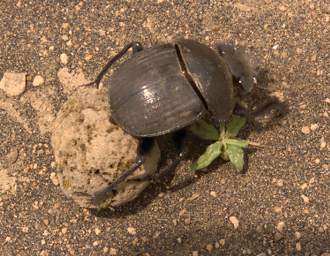 |
| Dung Beetle |
We continued across the vast plains, watching the occasional dust cloud stirred up by the wind. It was mostly overcast, and as the day progressed the clouds darkened. Finally, a few rain drops hit the windshield. Douglas wasted no time changing direction, heading for the nearest road. He did not want to get caught out here in or after a good rain. The rain didn't amount to squat, but you don't know that until it's over.
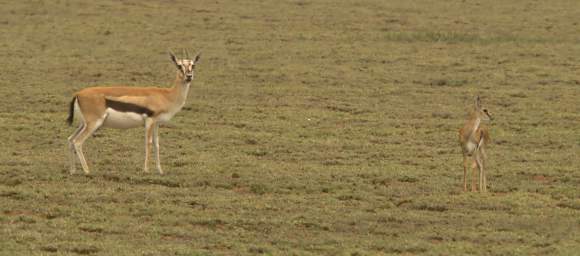 |
| Thompsons Gazelle with fawn |
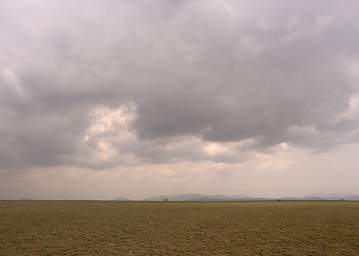 |
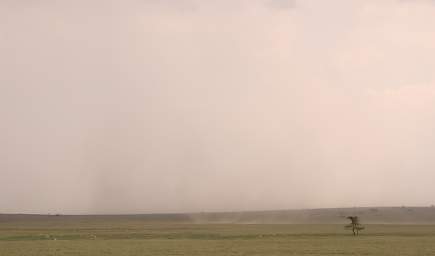 |
| Oldupai to Ndutu | |
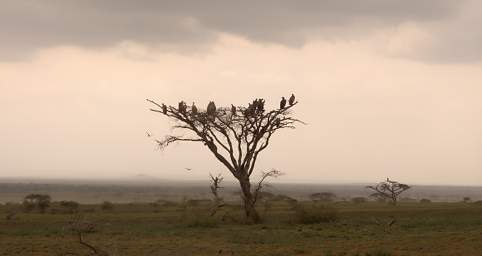 |
| Oldupai to Ndutu |
As we entered the Ndutu region of Serengeti National Park, the landscape became less stark. The grass was greener, and we began to see more trees and wildlife.
 |
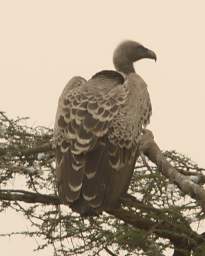 |
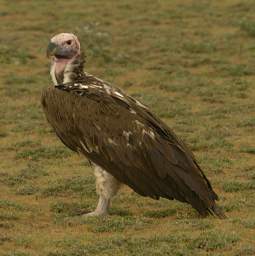 |
| Vultures
Photo by Dona |
Rueppell's Griffon Vulture | Lappet Faced Vulture |
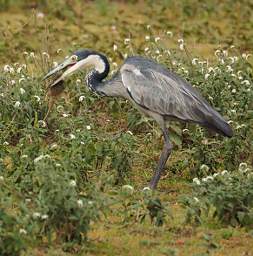 |
| Black Headed Heron
Photo by Dona |
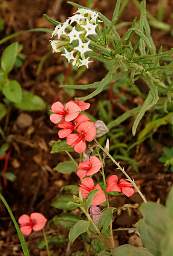 |
| Flower Xxx Pink White
Photo by Dona |
We found a nice Leopard Tortise which we stopped to check out.
 |
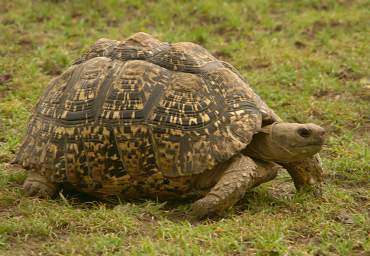 |
| Leopard Tortise Gary Douglas | Leopard Tortise |
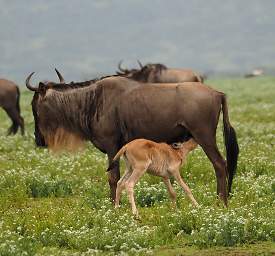 |
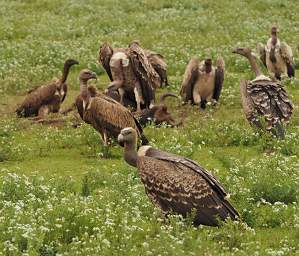 |
| Wildebeest Calf | Vultures finishing off a Wildebeest Carcass |
 |
| Birds at an isolated Pond |
Towards afternoon we arrived at our camp for the next few days, Flycatcher Lagarja Camp. We would be spending the next few days exploring the Ndutu area.